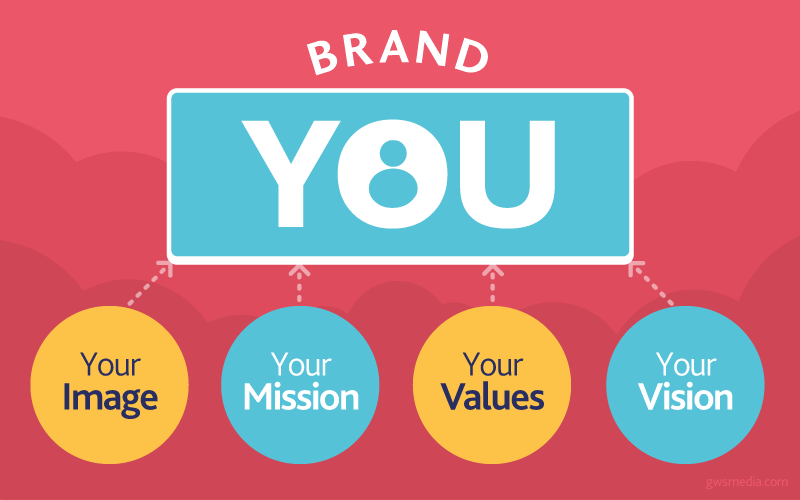How often do you think about your personal branding? Ever heard of the phrase, “Your reputation precedes you,”?
Whether you are an entrepreneur, business owner, or influencer, it’s your reputation with which the market recognizes you. And this is where the role of personal branding comes in.
Every organization or individual has a personal brand representing their personality and beliefs. Nike, Tesla, Amazon, Mcdonalds, and Coca-Cola are examples of companies focusing on a strong personal brand.
Keep reading if you want to avoid making personal branding mistakes, and learn how to reap the benefits to outshine your competitors.

Importance of Personal Branding
As the name suggests, personal branding is about creating a distinctive persona or impression for your target market. It’s a diverse domain that defines your values, goals, purpose, message, beliefs, ideology, and, most importantly, effective communication.
Here are some basics you need to cover to create a personal branding strategy.
- We live in a digital era, so creating an online presence is essential.
- Make friends with Twitter to interact with journalists and the press.
- Be vocal about your story behind creating a brand using all sorts of communication media.
- Stakeholder management is integral to personal branding to build trust among your clients.
Want to learn about the importance of personal branding? Read along.
Attract More Customers
If you successfully manage and retain a personal brand, you’ll be able to attract new customers. How? Customers value authenticity and reliability; clients come running your way if you promise to offer them that.
The market is full of similar products and services, with several companies making fake promises about the product’s effectiveness. The key is to remain genuine and true to your core values by devising a personal branding strategy to which customers feel connected.
More customers mean more revenue and a higher market share. It’s a win-win situation here. However, remember to be consistent in your branding to build long-term customer relationships.
Growth Opportunities
Besides reaching more customers and establishing trust, an effective personal brand opens several doors of growth opportunities, including:
- Networking
- Collaboration and partnership
- Promotional offers
- Sponsorship of events
- Showcasing products on roadshows
- Guest speaking
- Engagement sessions and seminars
Once a company establishes its brand, it has room to grow and expand its business and product lines. We live in a fast-paced world, and thanks to the Industry 4.0 revolution, companies must quickly learn and implement the latest technologies.
The personal brand empowers organizations and individuals to explore different growth opportunities to stay relevant to the market and customers.
Differentiate From Competitors
One of the companies’ most challenging tasks is persuading customers that they are better and different from their competitors. The good news is that an effective brand can help achieve the goal by establishing the following:
- Reliability
- Trust
- Authenticity
- Commitment
A successful personal brand highlights all your core values and promises to new and existing customers. In addition, it helps establish that your company has the expertise and advanced technology to cater to the customer’s requirements.
Once the message is communicated effectively, you have already created a distinctive position in the market.
Busting Personal Branding Myths
Now that you understand the importance of personal branding, let’s briefly discuss a few misconceptions.
Myth #!
First, personal branding isn’t about getting famous. A big NO! Ideally, it’s about representing yourself positively, proactively, and authentically without focusing on gaining fame.
Myth #2
Secondly, you don’t need to boost or brag about the company’s value or assets. Don’t tell the audience how great your company is. Instead, connect with them by telling them how your product or service will resolve their problem.
Myth #3
Finally, social media isn’t just for the executive committee of a company, but all the employees represent your brand online and offline. That’s why to invest in your employees and train them to become your brand ambassadors to spread your message to potential and existing customers.
Final Verdict on Personal Branding
Personal branding is how you want the customers to perceive your brand. With the right skills, tools, and experience, you can create unique personal branding that resonates with your audience.


Recent Comments